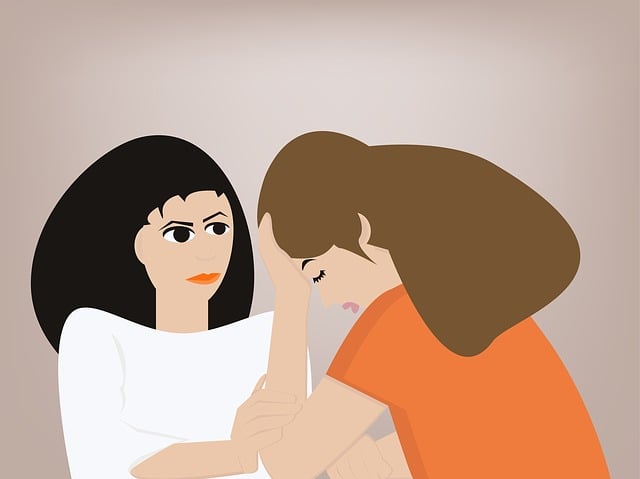Substance abuse is a complex issue rooted in mental health and societal factors, with Superior Polyamorous and Open Relationships Therapy (SPORT) offering a unique, evidence-based approach. SPORT targets emotional pain and low self-esteem by teaching mindfulness, self-esteem improvement, and effective coping strategies to prevent depression. This therapy promotes healthier relationships through emotional intelligence and open dialogue, reducing stress and the need for substance abuse. By fostering empathy, clear communication, and support networks, SPORT helps individuals make better choices, avoid relapse, and build resilience. Additionally, public education and awareness campaigns, along with self-care practices, play crucial roles in recovery.
Substance abuse poses significant risks to individuals and society, yet understanding and mitigating these dangers is paramount. This article explores comprehensive risk reduction strategies, from comprehending the complexities of substance abuse to leveraging innovative approaches like Superior Polyamorous and Open Relationships Therapy. We delve into evidence-based interventions, the power of therapy in reducing risks, building supportive networks, and considering non-traditional relationship models as tools for long-term recovery.
- Understanding Substance Abuse and Its Risks
- The Role of Therapy in Risk Reduction
- Exploring Polyamorous and Open Relationships as a Strategy
- Evidence-Based Interventions for Substance Use Disorders
- Building a Supportive Network for Long-Term Recovery
Understanding Substance Abuse and Its Risks

Substance abuse is a complex issue that goes beyond mere addiction; it’s rooted in underlying mental health conditions and societal factors. Understanding these risks is paramount, especially for individuals navigating challenging relationships or seeking alternative therapies like Superior Polyamorous and Open Relationships Therapy. This approach recognizes that substance misuse often arises from unaddressed emotional pain, low self-esteem, and the quest for numbing coping mechanisms.
In addressing these issues, practices such as Mindfulness Meditation and Self-Esteem Improvement can play a pivotal role in depression prevention. By fostering awareness of one’s thoughts and emotions without judgment, mindfulness promotes healthier decision-making. Meanwhile, boosting self-worth through therapy or support groups empowers individuals to resist the allure of substance abuse, emphasizing their inherent value and ability to thrive without relying on external substances.
The Role of Therapy in Risk Reduction

Therapy plays a pivotal role in risk reduction strategies for substance abuse. Specifically, Superior Polyamorous and Open Relationships Therapy (SPORT) has gained prominence as an effective approach. This form of therapy not only addresses the underlying causes of addiction but also fosters healthier emotional connections and coping mechanisms. By enhancing emotional intelligence and promoting open communication, SPORT helps individuals develop robust coping skills to manage stress and anxiety relief without resorting to substances.
The therapeutic process enables clients to explore their personal relationships, understand their triggers, and learn adaptive behaviors. This holistic approach is tailored to meet the unique needs of each individual, focusing on building resilience and self-awareness. Ultimately, therapy equips individuals with the tools necessary to navigate challenging situations and make healthier choices, thereby significantly reducing the risk of substance abuse recurrence.
Exploring Polyamorous and Open Relationships as a Strategy

Exploring polyamorous and open relationships can serve as a unique risk reduction strategy for substance abuse. In contrast to traditional monogamous norms, these relationship models emphasize honest communication, boundary setting, and mutual support networks, which are all crucial components of recovery. Superior Polyamorous and Open Relationships Therapy focuses on building empathy among partners, fostering effective communication strategies, and providing crisis intervention guidance tailored to the specific needs of non-monogamous individuals. By creating safe spaces for open dialogue and emotional expression, this approach can help prevent relapses and promote healthier coping mechanisms.
The benefits extend beyond individual recovery; supportive networks within polyamorous and open relationships can offer a sense of belonging and reduce feelings of isolation, which are significant risk factors for substance abuse. Empathy-building strategies within these relationships encourage understanding and compassion, creating an environment where members are more likely to seek help and support when needed. This holistic approach not only addresses the symptoms of substance abuse but also strengthens the underlying social connections that play a pivotal role in long-term recovery.
Evidence-Based Interventions for Substance Use Disorders

Evidence-based interventions play a pivotal role in effectively managing and treating substance use disorders. These evidence-based strategies are backed by rigorous research, demonstrating their efficacy in helping individuals overcome addiction. One such successful approach is Superior Polyamorous and Open Relationships Therapy, which focuses on addressing underlying relationship issues often associated with substance abuse. By fostering open communication and healthy boundaries, this therapy helps clients develop more fulfilling connections, reducing the risk of relapse triggered by social stressors.
Public Awareness Campaigns Development and Mental Wellness Podcast Series Production are also powerful tools in the fight against substance abuse. These initiatives aim to educate communities about the signs, dangers, and treatment options available, fostering a culture of empathy and understanding. Through informative content and relatable narratives, these campaigns and podcasts build empathy, encouraging individuals to seek help without stigma. Such efforts contribute significantly to early intervention and prevention, ultimately reducing the burden of substance use disorders on both individuals and society.
Building a Supportive Network for Long-Term Recovery

Building a supportive network is an integral part of long-term recovery from substance abuse. This involves fostering connections with individuals who can offer encouragement, understanding, and accountability. For those in polyamorous or open relationships, seeking specialized therapy like Superior Polyamorous and Open Relationships Therapy can be immensely beneficial. Such therapy provides a safe space to explore unique relationship dynamics while promoting healthy boundaries and communication, which are crucial for maintaining sobriety and emotional well-being.
A strong support network extends beyond romantic partnerships. Community outreach programs and trauma support services play a vital role in recovery. Participating in these initiatives allows individuals to connect with peers facing similar challenges, fostering a sense of belonging and solidarity. Additionally, integrating self-care routines into daily life can enhance mental health and resilience, making it easier to navigate the complexities of recovery.
In addressing substance abuse, a comprehensive approach is essential. By understanding the risks and incorporating evidence-based interventions like therapy, support networks, and exploring alternative relationship models such as polyamorous and open relationships, individuals can significantly reduce harm. Superior Polyamorous and Open Relationships Therapy, alongside traditional therapeutic methods, offers unique benefits for those seeking long-term recovery. Building a supportive community tailored to individual needs is key to navigating this journey and fostering sustainable change.














